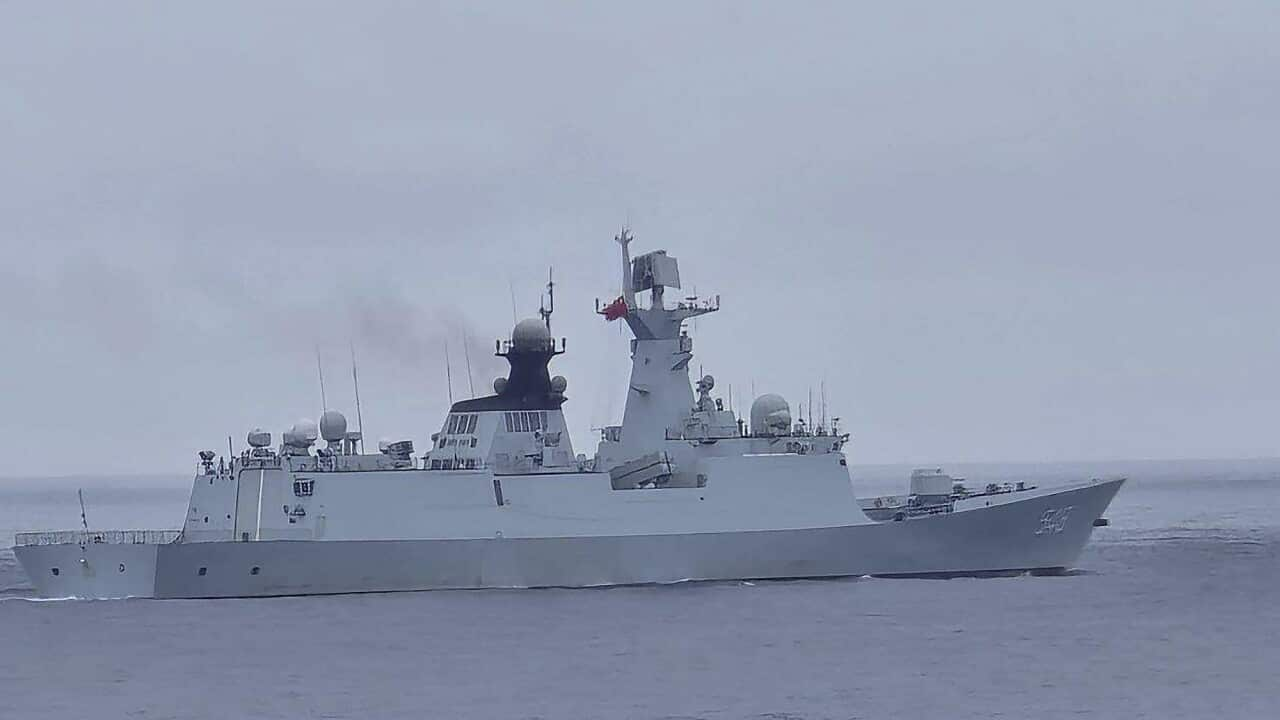TRANSCRIPT
That's a Taiwan Coast Guard officer responding to the approach of a Chinese vessel in the Taiwan Strait, mirroring similar activity by the Chinese military around groups of Taiwan-controlled islands close to the Chinese coast.
It comes just three days after the inauguration of Taiwan's new president, Lai Ching-te.
The 64-year-old doctor-turned-politician in the past openly advocated for Taiwan independence – a red line for China.
Mr Lai says he now favours the current status quo, saying there is no need to declare independence because the island is "already an independent sovereign country."
But China has denounced him as a "separatist", criticising his inauguration speech on Monday (20 May).
Chinese Foreign Ministry spokesperson Wang Wenbin says the large-scale military drills are a warning for supporters of Taiwanese independence.
"All secessionist acts of Taiwan independence will be met with a head-on attack by the 1.4 billion Chinese people, and all separate forces of Taiwan independence will be shattered in the face in front of the unstoppable trend of China’s reunification."
The newly elected Taiwanese president used his inauguration speech to call on China to stop its threats, saying Taiwan and China are "'not subordinate to each other".
Speaking after China launched its military drills, Mr Lai told troops he would continue to defend the values of freedom and democracy in the face of "external challenges and threats".
"I will stand on the front-line with all the brothers and sisters from the national army to defend the national peace together. At this moment, international society is paying lots of attention to democratic Taiwan. And while facing the external challenges and threats, we will continue to defend the values of democracy, protecting regional peace and stability."
In Taiwan, where residents are used to annual military exercises, the mood was calm, if uncertain.
While some expressed unease about the prospect of conflict, this man says he is not worried about a potential war after decades of similar drills.
"The drills happen every year, and this time it happens after the inauguration of a new government, I think they were trying to create news, striking while the iron is hot."
Taiwan has been governed independently of China since 1949.
Leaders on the island see it as distinct from the Chinese mainland, with its own constitution and democratically-elected leaders.
However, China views the island as part of its territory.
This woman in Beijing says she blames Western media for fuelling the narrative of the importance of Taiwanese independence.
"Many people in Taiwan are not aware of the situation in mainland China. However, some of them have been here, and after we get to know each other, they often find mainland China very good, which changes their perspectives. But while they were there, they might be biased by some propagandist media or other factors, leading them to believe that we are underdeveloped, or have all kinds of negative things."
The Chinese Foreign Ministry criticised countries like the US and Japan for condemning the military drills.
Speaking at the National Press Club in Canberra, the U-S deputy commander for the Indo-Pacific played down the potential for Australia to be drawn into a war in the region.
Lieutenant-General Stephen Sklenka says it is unclear what role, if any, Australian submarines manufactured under the AUKUS agreement would play.
But he says it is important not to underestimate the importance of this latest round of military drills by China.
"Last year, they simulated a maritime and air blockade of the island. Subsequent exercises this past year featured amphibious assault and counter-intervention operations that we are sure are gonna likely be built upon this year. I will tell you now though, I cannot underscore enough how devastating conflict in the Indo-Pacific region would be. At stake would be untold numbers of lives, trillions of dollars in global economic damage, and an international order, the maintenance of international order that’s delivered relative peace and stability over the past 80 years.”
The drills follow tension between Chinese and Australian forces operating in the Indo-Pacific, including a close run-in between a Chinese fighter jet and an Australian navy helicopter earlier this month.
Opposition foreign affairs spokesman Simon Birmingham told Sky News the potential deployment of Australian troops, in the event of an escalation, would be up to the government of the day.
He says the military drills shows the AUKUS trilateral security partnership is critical.
"This is deliberately dangerous action by China. It is action that risks miscalculation and risks escalation. Those risks should never be underestimated and it's why China should not be undertaking this type of dangerous and destabilising activity in the first place."













